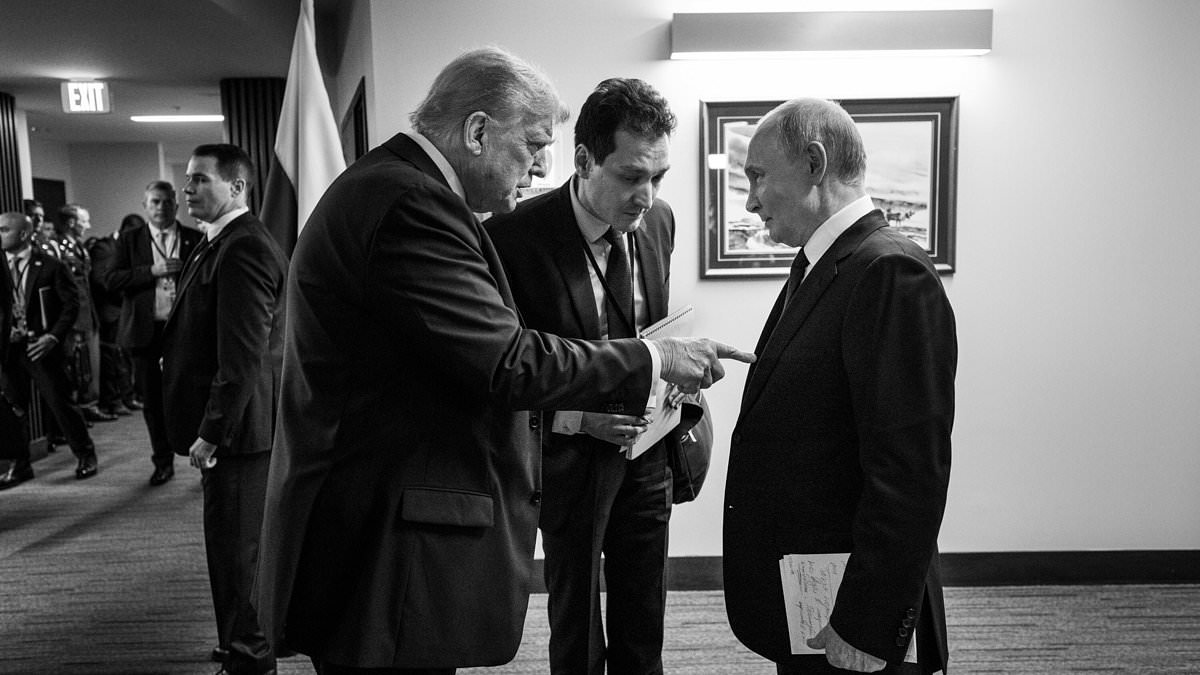
As tensions in Ukraine intensify, new accusations from Kyiv claim that Russia is deploying staged propaganda tactics to exaggerate its territorial gains in the Donetsk region. These alleged efforts, which involve suicidal missions aimed at creating fabricated evidence of dominance, aim to influence international perceptions ahead of critical peace discussions.
Putin’s Suicidal Propaganda Missions
According to Ukrainian intelligence, Russian armed forces are engaging in staged operations dubbed ‘flag-painting missions.’ Small units of soldiers are reportedly sent to frontline areas to raise the Russian tricolor flag in contested settlements, all while drones record the moment for Kremlin media outlets. The objective? To create narratives of an unstoppable Russian advance in Donetsk, despite these areas remaining under Ukrainian control.
However, these missions come at a high cost. Ukrainian forces have successfully intercepted many of these operations, with numerous Russian soldiers either being killed or captured. In a notable incident in the village of Iskra, also known as Andriyivka-Klevtsove, two Russian operatives were eliminated, while two others surrendered. Under interrogation, one captured soldier admitted, “Our task was to go with a Russian flag and take five photos in front of the drone.”
Ukraine’s Counter-Narrative
Ukrainian President Volodymyr Zelensky has taken a firm stance against territorial concessions, stating in a press conference that surrendering Ukrainian land for any peace agreement is “impossible.” Addressing the escalating tension, Zelensky highlighted that Russia’s propaganda strategies aim to manipulate global perception and pressure him into accepting unfavorable peace terms.
“The Russian army continues to suffer significant losses in its attempts to secure more favorable political positions for its leadership,” Zelensky said, expressing confidence in Ukraine’s defense strategies. Ukrainian forces are reportedly gaining ground in parts of Donetsk, successfully countering Russia’s advances even amid heavy attacks.
Pressure Mounts Ahead of High-Stakes Talks
Ahead of pivotal White House negotiations involving Zelensky, U.S. President Donald Trump, and European leaders, the stakes could not be higher. Allegations against Trump for favoring a peace deal that entails a controversial territorial ‘land swap’ with Russia have fueled criticism. Trump has insinuated that progress was made on such a proposal during his meeting with Russian President Vladimir Putin in Alaska last week.
European leaders, including UK Prime Minister Keir Starmer, French President Emmanuel Macron, and NATO Chief Mark Rutte, have rallied behind Zelensky, set to join him in Washington for the talks. Zelensky is expected to vehemently oppose any agreement that would cede large portions of Donetsk to Russia. Ukraine has already expressed skepticism over Russia’s sincerity in seeking a ceasefire, citing ongoing aggressive maneuvers.
Tragic Costs of Continued Fighting
The conflict continues to exact a devastating toll on Ukrainian civilians. Regional officials have confirmed mandatory evacuations of families with children from conflict zones, including settlements in Donetsk. This comes as Russian forces intensify artillery strikes in critical areas like Dnipropetrovsk, a key logistics hub for Ukraine’s military operations.
Despite these challenges, Ukrainian forces remain determined. “We are countering and increasing pressure,” Zelensky wrote on social media, emphasizing his faith in sustained international unity against Russia’s aggression.
What Lies Ahead?
The upcoming discussions at the White House could prove decisive for the future of the conflict. Trump, Russia, and European partners are pushing for dialogue, but the debate around territorial concessions remains contentious. Observers believe the talks may pave the way for a broader framework for peace, though Kyiv has made it clear that surrendering sovereignty will not be on the table.
The stakes surrounding these negotiations highlight the broader geopolitical implications of the Ukraine-Russia war. Both Ukraine’s resilience and Europe’s support remain critical in shaping the outcome of this prolonged conflict.






